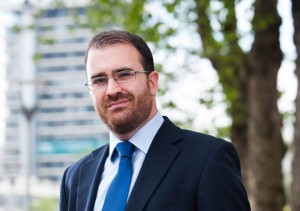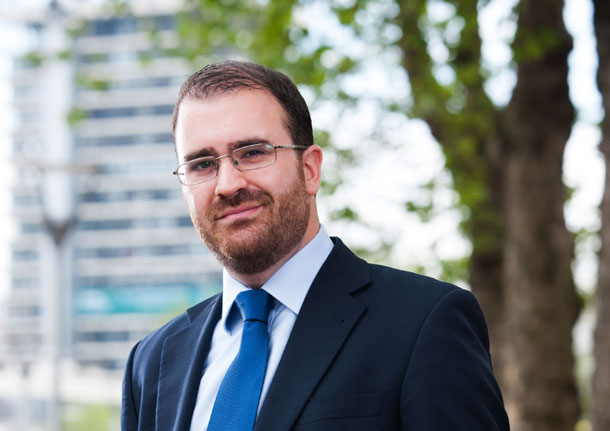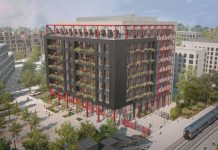 Growth in Bristol is in danger of being hobbled due to the sheer numbers of commuters making the twice daily trek to business hotspots such as Aztec West and the lack of infrastructure to manage it.
Growth in Bristol is in danger of being hobbled due to the sheer numbers of commuters making the twice daily trek to business hotspots such as Aztec West and the lack of infrastructure to manage it.
That’s the view of Industrial and commercial experts from Colliers International who have responded to Bristol Mayor George Ferguson’s decision to set up a new traffic team to get the city moving once more.
Welcoming the move as positive recognition that something must be done to try and ease the gridlock, Colliers International say it is important to ensure the views of the city’s business community are taken onboard when formulating solutions.
Sustainability and Property Management specialist Mike Bull, who is coordinating Colliers International’s response to George Ferguson’s traffic initiatives, said: “A great example of the problem is Aztec West – if you work there then realistically your only option is to drive.
“This adds to the congestion problem and exacerbates the chronic shortage of parking in the area which in turn constrains the growth of what is otherwise a successful development. Time and again we hear tenants raising concerns over parking and prospective tenants sceptical about getting their staff to work on time.
“We’ve got too many cars and not enough options available to give commuters a viable alternative. Public transport isn’t taking as many people off the road as it does in other comparable cities, in no small part due to the high cost of fares and the fact Bristol’s buses have to negotiate choked cross city routes along with thousands of commuters trying to do the same.”
The Broad Quay based commercial property specialists have put together a shortlist of proposals which they say should be taken into consideration to help existing businesses grow and to attract new businesses to Bristol.
Marcus Plaw, from the consultancy’s Planning Team suggested a joined up approach was required. He said: “The team should have a positive focus with the key aim of unlocking development and business growth opportunities. An important consideration will be the application of planning policies in delivering development and influencing public and private transport use to benefit the city.”
Their proposals include the immediate re-opening of the Bristol to Portishead rail line and subsidised bus travel to enable fares to be reduced. They have pointed to schemes in London where under 16s travel for free.
Tim Davies, Head of Colliers International’s Bristol office said: “As we outlined in our Mid-Summer Retail Report in July 2012, parents are not cutting back on their children’s spending money in the current economic climate, meaning there is retail demand from the young – they have money to spend and we should be trying to make sure they spend it in Bristol.”
They have also called on the transport panel to lobby central government to provide funds towards a new tram system, particularly along the originally discussed north Bristol line but also incorporating a fast link to Bristol airport.
Stephen Lipfriend said: “If people could commute into Bristol through Temple Meads and then quickly travel out of town to sites like Aztec West, then this could ease congestion on the roads and reduce the impact of a legion of cars descending on the local community.
“Other cities have introduced tram systems to speed commuter movement and also boost business and retail opportunities.
He added: “It is also time for the city to take a meaningful survey of bus usage – a quick glimpse suggests that 90 per cent of the buses stuck in queues around the city centre are empty for 90 per cent of the time.
“This is undoubtedly connected with the ludicrous pricing structure which is clearly discouraging many commuters from switching from their car to the bus or the train. There also needs to be more information on the internet as to when and where buses stop.”
Colliers International agents also highlighted the high cost of parking in Bristol city centre, pointing out that shopping centres which offer free parking such as Yate and Willow Brook at Bradley Stoke have continued to trade well.
The team also suggested the city needs to develop ‘Park & Cycle’ schemes along the established cycle paths so people living further out could commute part of the way by car, then park and the cycle the rest of their journey to work.
Mike Bull concluded: “Most towns and cities struggle with transport or movement infrastructure – traffic congestion and associated pollution is now a fact of life. But it must be tackled head on boldly. A piecemeal approach to resolving strategic issues will not work.
“We hope the Mayor can monitor developments, cut through emerging red tape and bring forward transport solutions which encourage wider economic investment and growth.
“We believe that Bristol is one of the greatest cities in the UK to live and to work – but travelling around it is not as easy or enjoyable as it should be.”



















